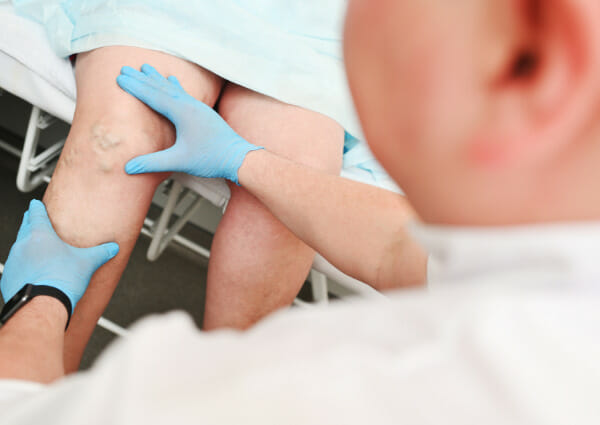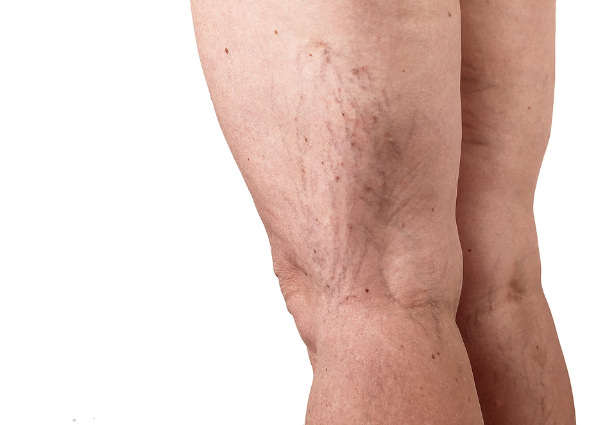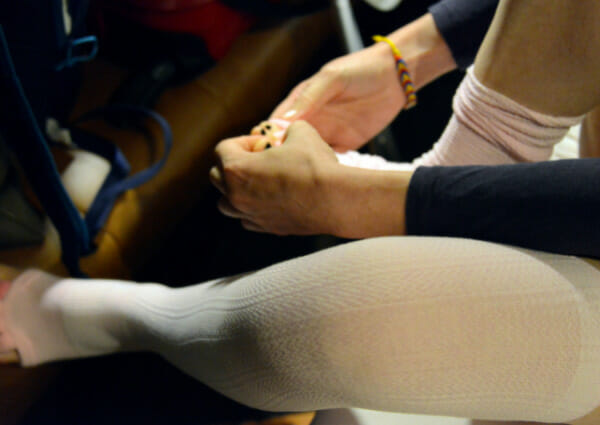9 Things to Ask Your Varicose Vein Doctor About Your Treatment

Varicose veins and spider veins aren’t just unsightly. Since varicose veins typically affect the leg veins, they can also be uncomfortable and painful, affecting your quality of life.
Suppose you’re receiving treatment for varicose veins. In that case, whether it is an outpatient procedure such as vein stripping or vascular surgery, you’ll need to know what post-procedure care is best to ensure the best possible outcome.
This article will provide you with some of the most important questions to ask your vascular surgeon or varicose vein doctor about your treatment.
1. What Are Varicose Veins, Spider Veins, and Deep Vein Thrombosis?
If you have varicose veins, vein thrombosis, or spider veins, you must understand exactly what these conditions are and how they differ.
Keep in mind that spider veins generally do not require treatment, as they are small varicose veins, while thrombosis, a more severe condition, occurs when a blood clot forms in a blood vessel.
These blood clots can restrict blood flow and cause venous insufficiency, so vein surgery to treat this condition may require more serious treatment.
Treatment will differ for each condition, so talk to your healthcare provider to ensure you know what to expect.
[Read: Vein Specialist Explains: How To Get Rid of Varicose Veins Effectively]
2. Do I Need Treatment for Varicose Veins?
The truth is that varicose veins don’t always require treatment. You might not require treatment if they are not bothering you or if the affected blood vessels are smaller varicose veins. The only time varicose vein therapy is typically required is if the condition is painful or uncomfortable.
However, it is important that you consult your healthcare provider if you suspect that you have varicose veins, especially if they are causing you discomfort. This is because varicose veins can cause chronic venous insufficiency if left untreated for a long time which can cause an increase in pressure on the affected veins and potentially cause tissue and inflammation in the area.
It is also essential to consult your doctor if you suspect that you have varicose veins because it could result in a more serious condition, such as thrombosis, which can be caused by varicose or reticular veins.
3. What Causes Varicose Veins and Why Do They Affect the Leg Veins?

It would help if you also asked your doctor what causes varicose veins to form, so you understand the condition well. It is also a good idea to ask why this condition tends to occur in the leg veins.
This can help you start a discussion about the appropriate treatment options for varicose veins and discuss what self-care plan you can implement to improve your symptoms.
Standing or sitting for long periods, for example, could be the cause of your varicose veins, so alternating between sitting and standing can keep blood from pooling in the blood vessels in your legs and help to get the blood flowing properly.
[Read: Varicose Veins: Pain, Swelling & Managing Your Symptoms]
4. What Are My Treatment Options?
Depending on the severity of your condition, there are several treatment options to improve your blood flow and ease the symptoms of varicose veins.
You must discuss your options with your doctor and choose a treatment plan that works for you.
Here are some of the most commonly used treatment options for varicose veins:
- Self-care – includes exercise, elevating the legs, and more
- Compression stockings – this can improve blood flow in the leg veins
- Surgical treatment options – if your symptoms are more severe, you can talk to your healthcare provider about catheter-based procedures, sclerotherapy, phlebectomy, and radiofrequency vein ablations.
5. What Procedures Do You Perform?
Another essential question to ask is which procedures your doctor performs. Your provider may recommend sclerotherapy or other necessary treatment options available that best fits your medical condition.
6. Are Compression Stockings Worth a Try?

A quick search about treatments for varicose veins, and you’re likely to come across compression stockings. These stockings help by compressing the leg veins to facilitate blood flow and help to ease symptoms.
We recommend talking to your doctor to find out how to wear compression stockings and when to use them. You can also ask your doctor where you can buy them, what the different types are, which type would be best for you, and whether they will help you get rid of your varicose veins for good.
7. Are There Medicines to Help Me with My Varicose Veins?
Over-the-counter NSAIDs (nonsteroidal anti-inflammatory drugs) such as ibuprofen or pain relievers can help reduce the pain of varicose veins. But these medications will only help alleviate symptoms of varicose veins, they will not treat or improve the underlying problem with the veins.
8. What Can I Do to Prevent New Varicose Veins?

Your doctor can recommend some methods to help you prevent the formation of new varicose veins, so be sure to ask what you can do to improve your vascular health when getting your veins treated. Here are some of the things your physician may recommend:
- Regular exercise to get your blood flowing
- Don’t sit or stand for long periods
- Losing weight
- Avoiding tight-fitting clothing
- Follow a healthy diet
- Don’t wear high heels
- Receive massage therapy
- Booking a follow-up consultation at VISP vein center to assess your vascular health
[Reminder: Not all types of exercises are recommended to prevent new varicose veins. For more information, read: Exercises for Varicose Veins]
9. What Post-op Care Is Needed?
In the event a direct intervention is needed, an essential question to ask is how to take care of yourself after receiving treatment or undergoing vascular surgery for varicose veins. Your doctor may recommend:
- Avoiding stairs
- Elevating the affected leg to relieve pain
- Not sitting or standing for long periods
Book a Consultation With Your Varicose Vein Doctor Now!
If you are receiving treatment for spider and varicose veins, you must understand your condition and available treatment options. Your vascular specialist can help you determine the right course of action for your unique case.
Suppose you are experiencing discomfort or pain because of varicose veins. In that case, seeking professional therapy may be your only option. We can help you treat a variety of vein problems. Request a consultation to find out more about how a VISP vascular practitioner can help you effectively eliminate varicose veins!
Vascular & Interventional Specialists of Prescott was formed in 2010 by a group of subspecialty radiologists that perform numerous minimally-invasive, low-risk procedures using the tools of our trade for guidance—x-ray, ultrasound, CT scan, and MRI. The team’s goal is to educate patients and medical communities, while also providing safe and compassionate health care, with rapid recovery times and low risk of complications.
